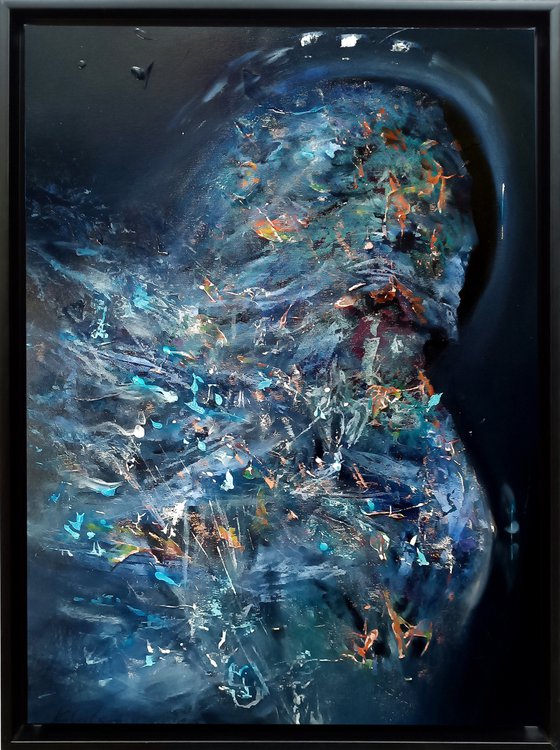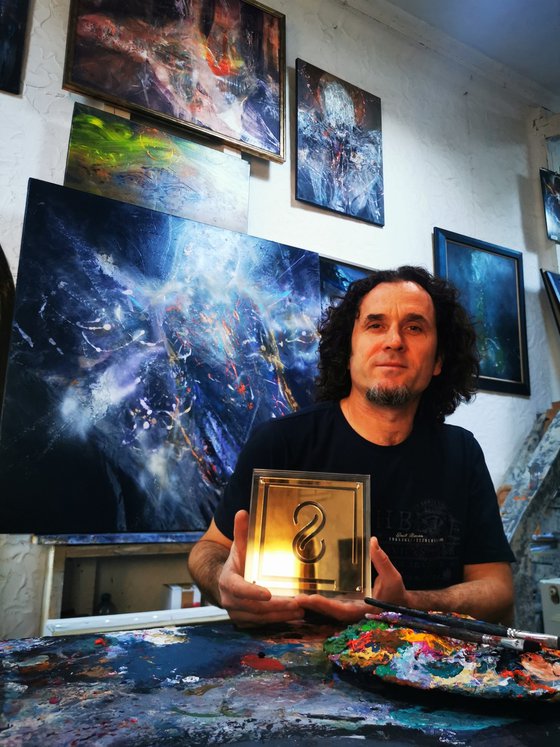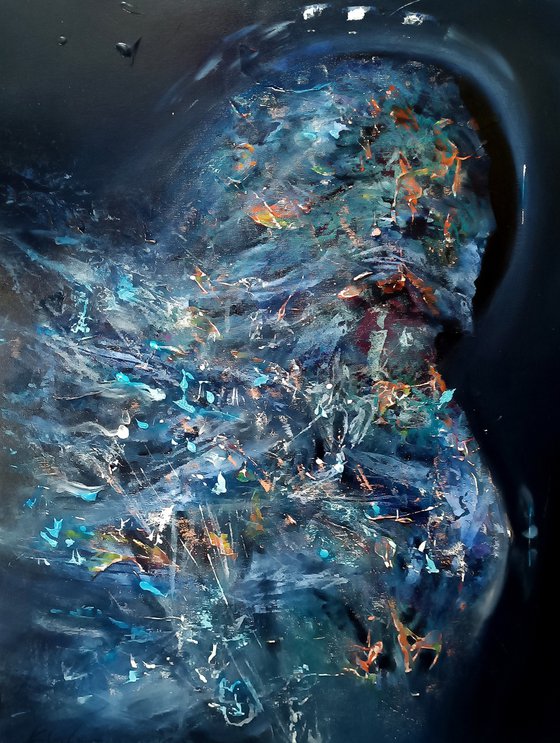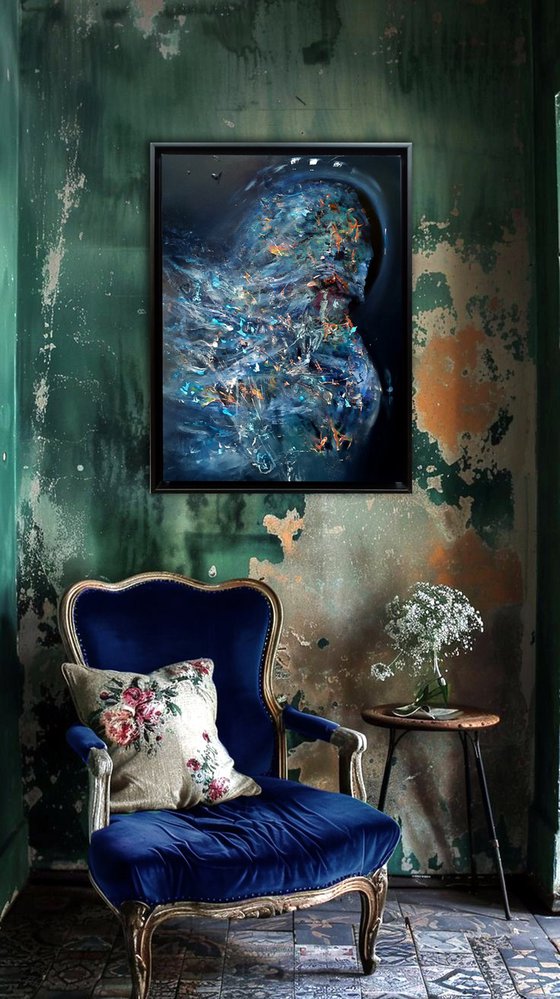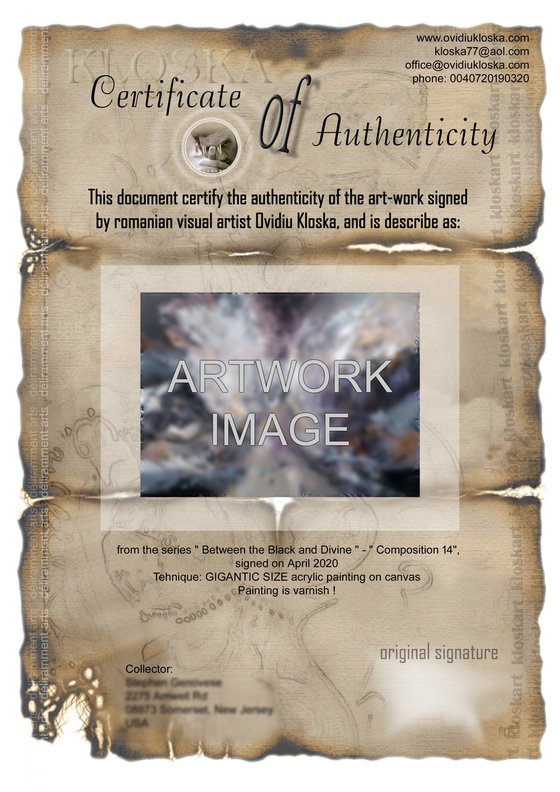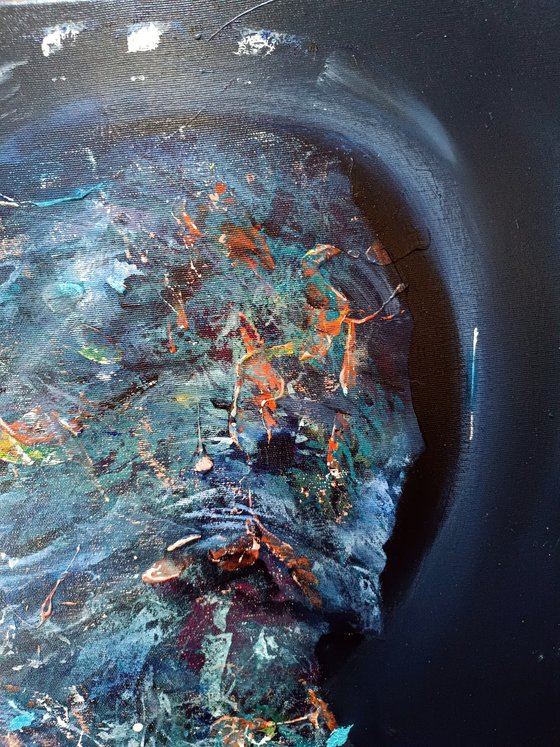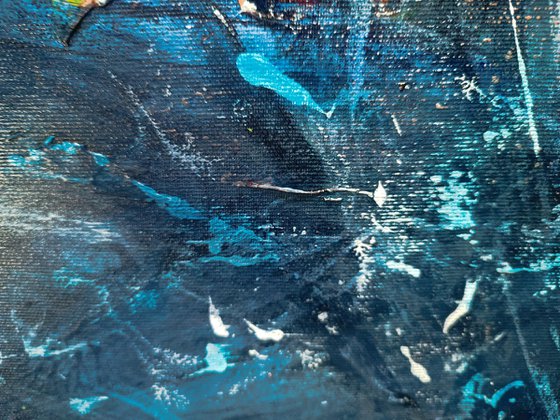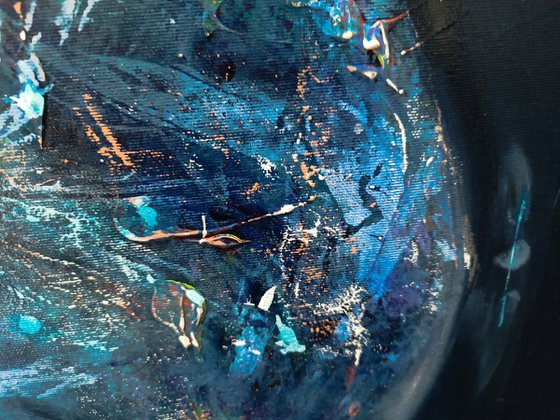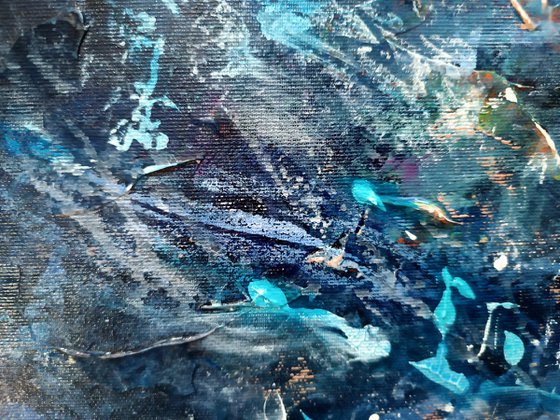- Kloska Ovidiu
- All Artworks
- ANGEL WAITING 232
ANGEL WAITING 232 (2025)Acrylic painting by Kloska Ovidiu
66 x 86 x 3cm (framed) / 60 x 80cm (actual image size)
£873.1Sold
Do you like this artwork?
This artwork has sold, but the artist is accepting commission requests. Commissioning an artwork is easy and you get a perfectly personalised piece.
Original artwork description
✨ "The Waiting of the Unseen One"
Across the great arc of spiritual traditions—from the earliest civilizations to the sacred texts of the world—angels have stood as thresholds between matter and spirit, between the visible and the eternal unseen.
This painting does not depict an angel in the classical sense—with wings and human form—but rather evokes the very essence of angelic presence becoming, on the verge of appearing, suspended in that sacred tension between being and revelation.
Its silhouette—fluid, vaporous, like a memory made of light—echoes the awe-inspiring celestial entities of Sumerian tablets: beings of fire and wind, guardians of cosmic knowledge. In the Egyptian Book of the Dead, radiant intermediaries known as akhu guided souls through realms beyond comprehension. In Jewish mysticism, angels are vibrations of the divine name itself; in Christian gnosis, they are luminous emanations of cosmic consciousness—never fully formed, never fully apart.
And perhaps this angel is not separate from us at all, but an ideal version of ourselves—projected from the subtlest layer of consciousness. From that vibrational field the mystics called the "light body"—our sacred potential, our ultimate becoming. This is not just a presence, but a mirror: a reminder that the angel is also within, waiting to rise.
From a deep, primordial darkness—the womb of all beginnings—a form stirs. Yet it is not a fixed form, but a state of being. A presence in transit between silence and manifestation.
The cosmic palette—deep blues, fractured turquoises, golden reds and translucent whites—pulses like a stellar heart. The fragmentation echoes the Kabbalistic myth of the “shattering of vessels,” when divine light, too immense to contain, burst into the world as scattered souls.
This angel does not descend.
It waits.
It waits to be seen by the heart’s eye. It waits for silence in the soul, for ego to fall away, for time to become still. It reveals itself not when we search for it, but when we stop searching.
Kloska does not paint a narrative. He paints a metaphysical breath—the suspended instant between dream and awakening, between death and return, between shadow and illumination.
The painting becomes a gate, not an image. A gate into what Plato called the “unseen form of beauty,” what Sufi mystics called “the angel behind the angel,” what sleeps within us until remembered.
This work is a silent architecture of light, vibrating in harmony with the unseen field of the human soul—an echo of our final illumination. It is not an angel watching us.
It is the one we are becoming.
Materials used:
acrylics on canvas framed varnished
Details:
- Acrylic painting on Canvas
- One of a kind artwork
- Size: 66 x 86 x 3cm (framed) / 60 x 80cm (actual image size)
- Framed and ready to hang
- Signed on the front
- Style: Expressive and gestural
- Subject: People and portraits
Tags:
#religion#angel painting#metaphysical#divinity#phylosophy#enigmatic#human spirituality#archangel#ovidiu kloska#mysthical painting14 day money back guaranteeLearn more
Original artwork description
✨ "The Waiting of the Unseen One"
Across the great arc of spiritual traditions—from the earliest civilizations to the sacred texts of the world—angels have stood as thresholds between matter and spirit, between the visible and the eternal unseen.
This painting does not depict an angel in the classical sense—with wings and human form—but rather evokes the very essence of angelic presence becoming, on the verge of appearing, suspended in that sacred tension between being and revelation.
Its silhouette—fluid, vaporous, like a memory made of light—echoes the awe-inspiring celestial entities of Sumerian tablets: beings of fire and wind, guardians of cosmic knowledge. In the Egyptian Book of the Dead, radiant intermediaries known as akhu guided souls through realms beyond comprehension. In Jewish mysticism, angels are vibrations of the divine name itself; in Christian gnosis, they are luminous emanations of cosmic consciousness—never fully formed, never fully apart.
And perhaps this angel is not separate from us at all, but an ideal version of ourselves—projected from the subtlest layer of consciousness. From that vibrational field the mystics called the "light body"—our sacred potential, our ultimate becoming. This is not just a presence, but a mirror: a reminder that the angel is also within, waiting to rise.
From a deep, primordial darkness—the womb of all beginnings—a form stirs. Yet it is not a fixed form, but a state of being. A presence in transit between silence and manifestation.
The cosmic palette—deep blues, fractured turquoises, golden reds and translucent whites—pulses like a stellar heart. The fragmentation echoes the Kabbalistic myth of the “shattering of vessels,” when divine light, too immense to contain, burst into the world as scattered souls.
This angel does not descend.
It waits.
It waits to be seen by the heart’s eye. It waits for silence in the soul, for ego to fall away, for time to become still. It reveals itself not when we search for it, but when we stop searching.
Kloska does not paint a narrative. He paints a metaphysical breath—the suspended instant between dream and awakening, between death and return, between shadow and illumination.
The painting becomes a gate, not an image. A gate into what Plato called the “unseen form of beauty,” what Sufi mystics called “the angel behind the angel,” what sleeps within us until remembered.
This work is a silent architecture of light, vibrating in harmony with the unseen field of the human soul—an echo of our final illumination. It is not an angel watching us.
It is the one we are becoming.
Materials used:
acrylics on canvas framed varnished
Details:
- Acrylic painting on Canvas
- One of a kind artwork
- Size: 66 x 86 x 3cm (framed) / 60 x 80cm (actual image size)
- Framed and ready to hang
- Signed on the front
- Style: Expressive and gestural
- Subject: People and portraits
Tags:
#religion#angel painting#metaphysical#divinity#phylosophy#enigmatic#human spirituality#archangel#ovidiu kloska#mysthical painting